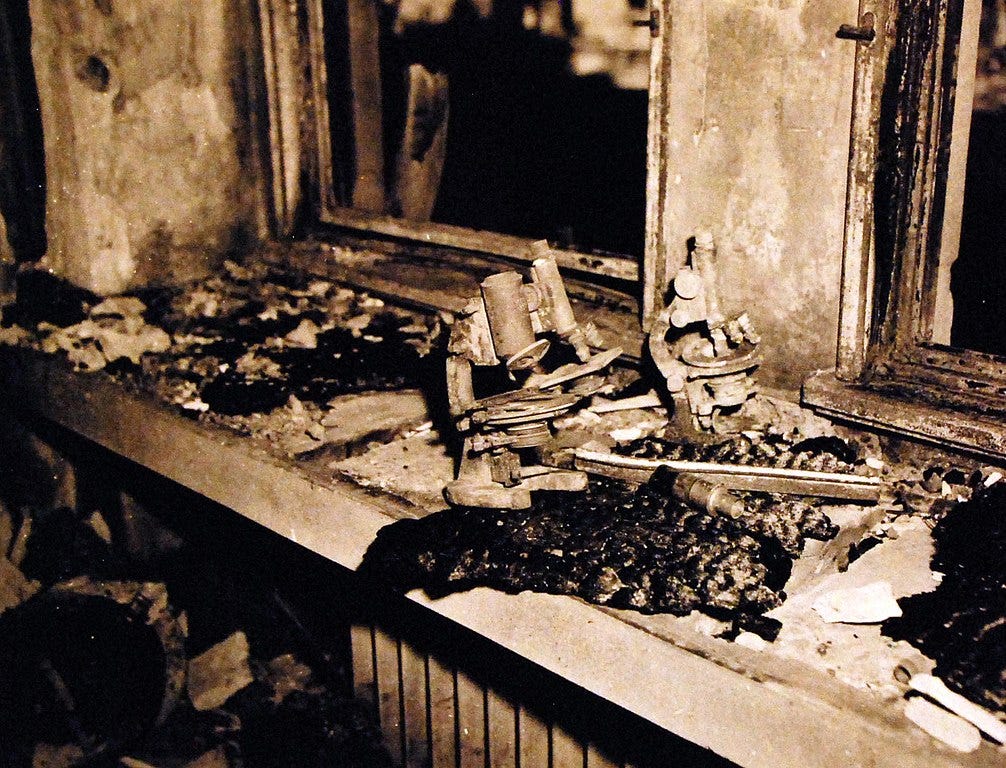Rhyming with Hiroshima
Not the First Time Doctors Have Fought Medical Censorship
(Originally published on August 6, 2020.)
Image: Public domain.
This is not the first time doctors have had to fight official censorship of medical information in order to do what they believe is right. From my 2011 piece on Kenzaburo Oe's "Hiroshima Notes":
"Today, we take for granted knowledge about the deadly effects of nuclear weapons. In fact, this knowledge was hard-won, and not with the aid of government grants and oversight but quite the opposite. Doctors and researchers had to fight the official keepers of public opinion in order to first discover and then reveal the truth about the effects of these weapons.
"In the fall of 1945, the U.S. Army Surgeons Investigation Team declared that all people who were expected to die from radiation effects of the bomb had already died and that no new cases would be acknowledged. Hospitals put out optimistic reports, downplaying the concerns of survivors, and telling pregnant women not to worry about any ill effects on their unborn babies. Doctors like Dr. Fumio Shigeto, the director of the Hiroshima Red Cross Hospital, surrounded by a society that seemed hell-bent on denying the effects of the bombs, worked to document the controversial connection between bomb exposure and leukemia. Even after the ban on discussing such things had been lifted, these doctors came under harsh criticism from the Atomic Bomb Casualty Commission for making their concerns public.
"The story of those who cared for the bomb’s victims is emphatically a story of people, not institutions: “The leading role in A-bomb medical care,” writes Oe, “was not taken by the national government; quite the opposite, it was started with virtually no initial resources through the energy and efforts of the unbowing, persevering local people who had to contend with reluctant national authorities every step of the way.” The A-Bomb Hospital which Dr. Shigeto also ran, says Oe, ..”.was not built by, nor is it maintained by, the national government. It was built with proceeds from the New Year’s postal lottery.”
"Dr. Shigeto – a man with “neither too little nor too much hope” – had arrived in Hiroshima only a week before the bombing. Following the blast, he worked tirelessly to understand its effects on his patients:"



And let's not forget about the whitewashing of Japan's WW2 bioweapons program that is being maintained by our government to this day! They didn't just lie about it to make it go away. They decided that was such a cool thing that they wanted to make it their very own. And so they did.
The biggest difference between now and back then is that those weapons are pointed at the citizens of western governments rather than enemies abroad.
"the leading role in A-Bomb medical care was not taken by the national government; quite the opposite" is quite correct, yet shows a naïeveté about government. Neither Japan's nor the US government should be expected to take such a leading role. Government go to war and drop inhumane bombs on civilians, so it is no wonder they tend to cover up the results instead of scientifically document them.